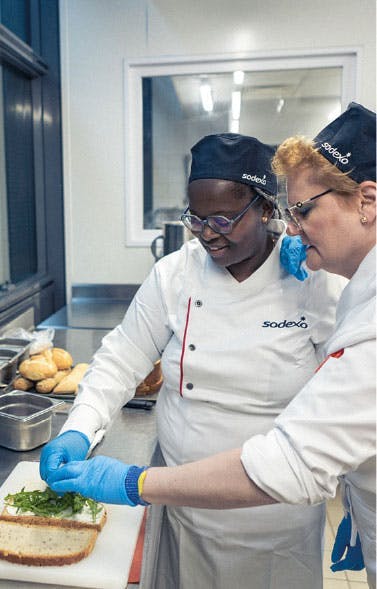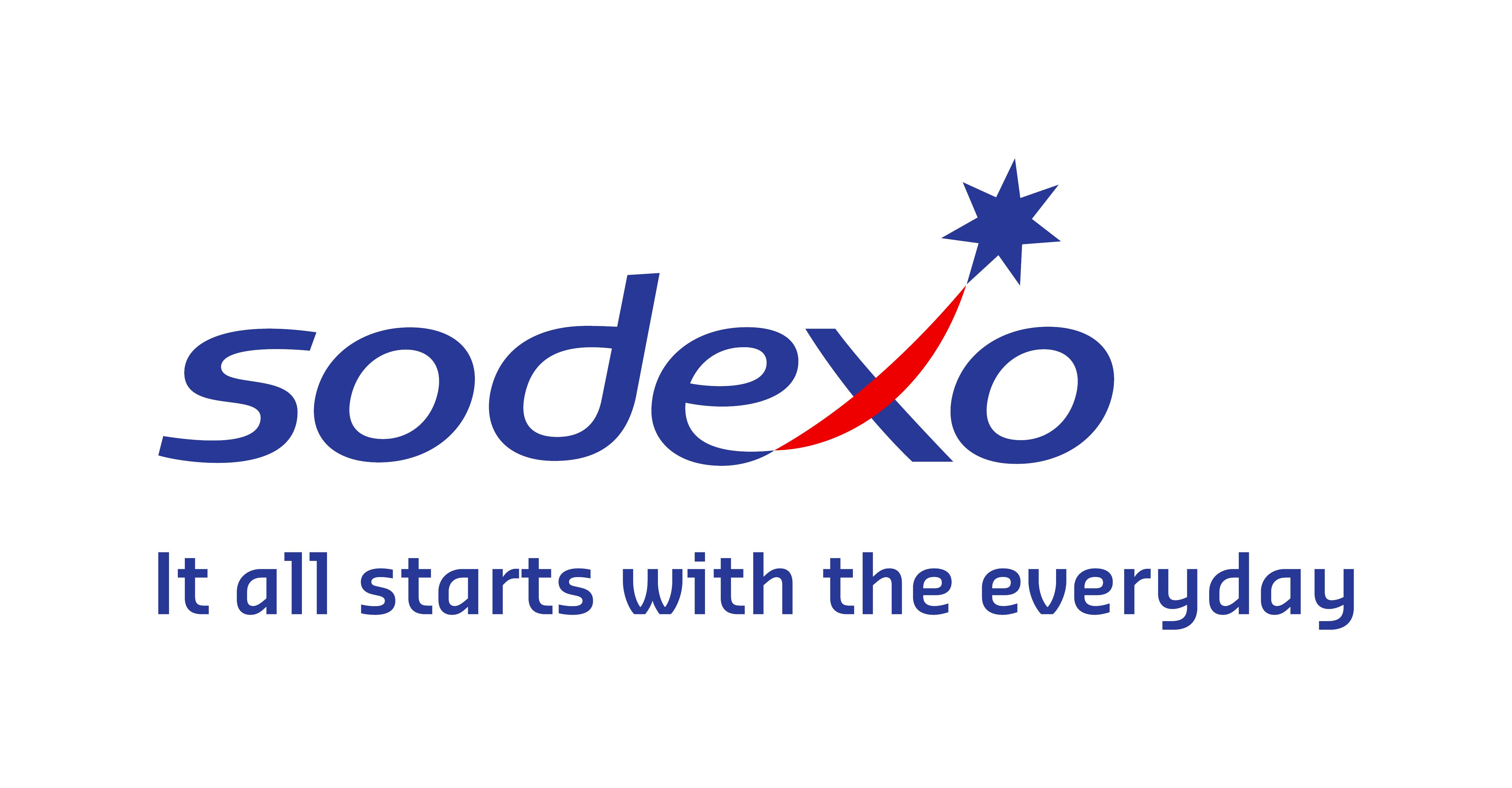1.2 Strategy and performance
For a positive global impactFor Sodexo, choosing responsible growth means continuing to act on a daily basis to serve its clients and consumers, in a way that is safer, healthier and more respectful of the environment.It also means improving the way it takes care of its employees, the quality of the meals it serves and the services it offers as well as its role as a corporate citizen. Drawing on experience, Sodexo is continuing to measure, give meaning and mobilize its stakeholders to fully activate the transformative potential of its corporate responsibility commitments.

Facing the climate emergency, an ambitious and global project
Being the first company in its sector to have shared its environmental ambition, Sodexo is committed to taking action against climate change at all levels of its value chain. Since 2010, the Group has been working with the World Wildlife Fund (WWF) to understand, measure and reduce its global carbon footprint, in collaboration with its clients and suppliers. In 2019, Sodexo was also one of the first major groups to adopt a target of reducing its direct and indirect greenhouse gas emissions (scopes 1, 2 and 3) by -34% by 2025 compared to 2017, approved by the Science Based Targets initiative (SBTi) and in line with the Paris Agreement around a 1.5°C trajectory.

PROMOTING A HEALTHY AND SUSTAINABLE DIET
In addition to the health benefits for consumers, a varied, sustainable and plant-based diet is also a way to significantly reduce carbon emissions. Sodexo thus raises awareness among its consumers of the environmental impact of their plates and encourages them to change their eating habits by offering sustainable recipes and tasty plant-based dishes. Thus, Sodexo intends to increase low-carbon options in its menus by ensuring that ingredients are sourced from best agricultural practices.

Fight against waste
Fighting food waste is a key lever to reduce the climate impact. On the sites where the Group has deployed its Waste Watch program, food waste was reduced by more than 40% on average. Sodexo commits to taking the deployment of Waste Watch to 85% of its food service sites by 2025 (based on raw material cost), with greater acceleration as well as employee and consumer engagement, to achieve a 50% reduction global target by 2025.
Beyond this program, Sodexo acts at all stages of its value chain to minimize its impact. The Group acts, for example,through training and awareness-raising for its teams and consumers, partnerships with local players committed to the circular economy, waste recovery or recycling.
To act on a global scale, Sodexo continues its efforts as a founding member of the International Food Waste Coalition (IFWC) and its leaders also participate in the Champions 12.3 coalition.

Diversity, equity and inclusion: a daily commiment
Sodexo is committed to supporting and promoting diversity and equal opportunity, as well as developing an inclusive workplace culture in all countries where it operates. A pioneer and recognized leader in the field, Sodexo strives to ensure the conditions for the well-being and fulfilment of its employees and valuing empathy, respect and mutual support. The company maintains loyalty and transparency as essential conditions of its relations with its clients, partners and communities. Its approach to diversity, equity and inclusion is for Sodexo an essential driver of performance, attractiveness and employee engagement, and a differentiating factor for clients, consumers, suppliers and investors.
Sodexo's strategy in this area is based on five dimensions: promotion of gender equality, commitment to inclusion and against cultural, ethnic or origin discrimination, equal opportunities for people with disabilities, respect for all sexual orientations and gender identities and consideration of intergenerational differences.
For more information, see chapter 2 of the Universal Registration Document and www.sodexo.com
